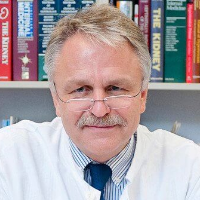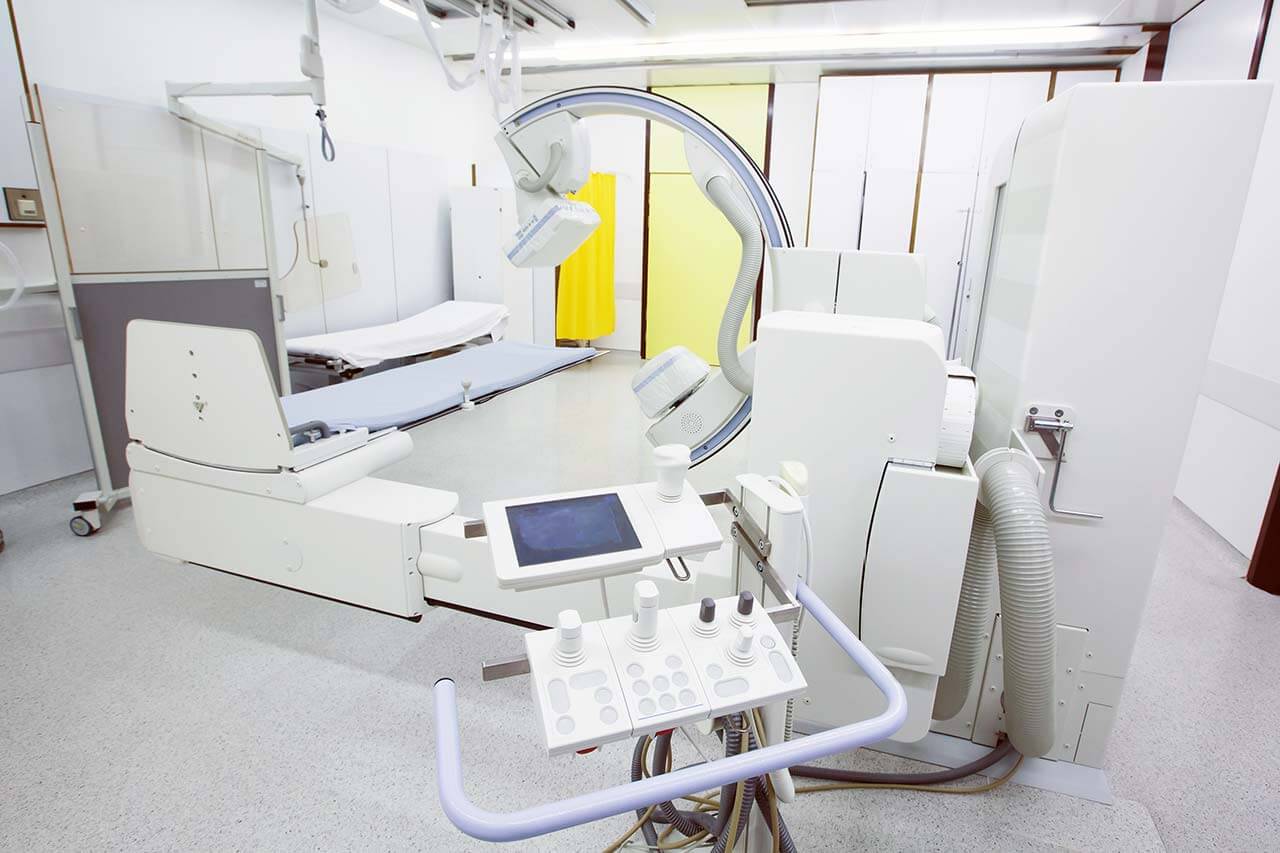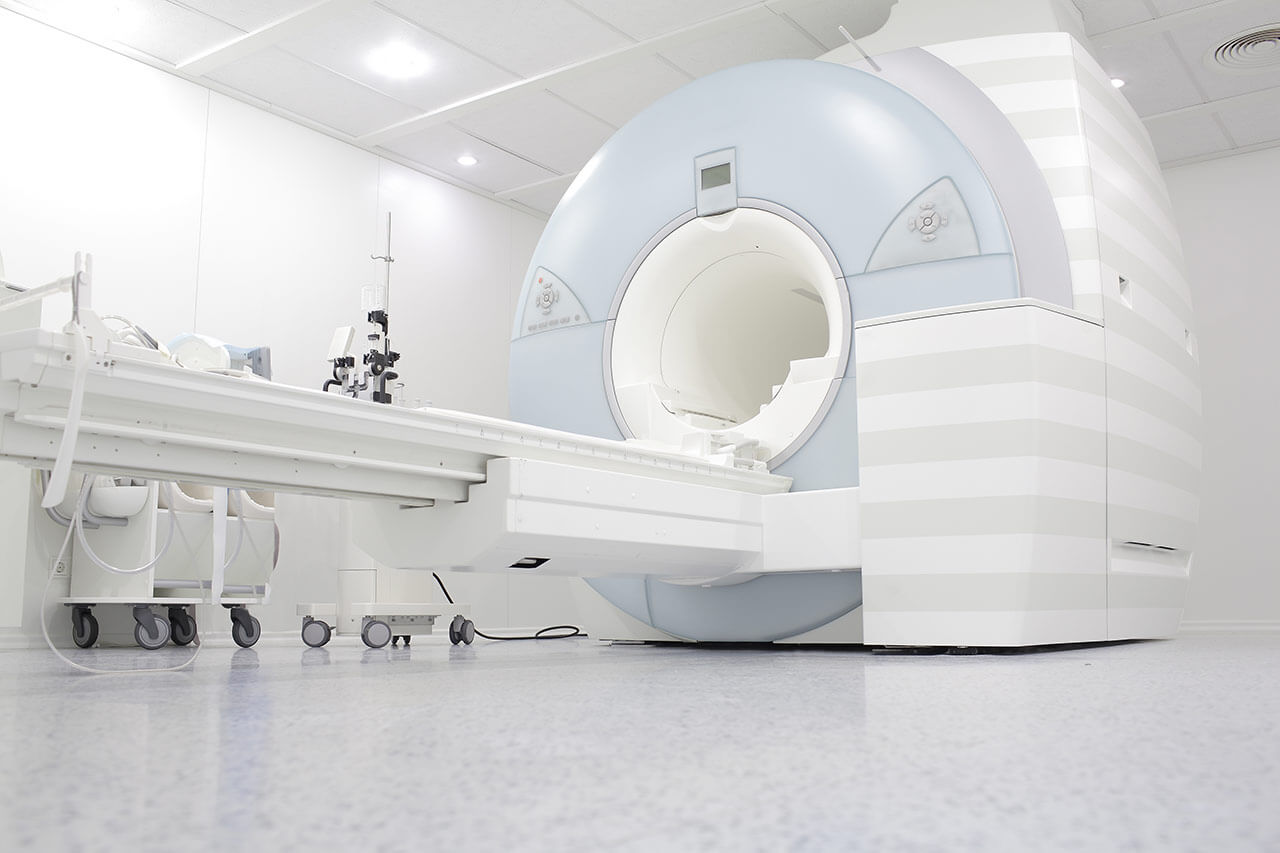
The program includes:
- Initial presentation in the clinic
- clinical history taking
- review of medical records
- physical examination
- urological examination
- laboratory tests:
- complete blood count
- general urine analysis
- microalbumin test
- biochemical blood test
- inflammation markers (CRP, ESR)
- blood coagulation analysis (aPTT, PT, INR)
- ultrasound of the urogenital system
- nursing services
- consultation of related specialists
- treatment by chief physician and all leading experts
- explanation of individual treatment plan
Required documents
- Medical records
- Kidney US (if available)
- MRI/CT scan (if available)
Service
You may also book:
 BookingHealth Price from:
BookingHealth Price from:
About the department
The Department of Nephrology at the Hannover Medical School provides the full range of diagnostic and therapeutic services to patients with acute and chronic kidney diseases. A special feature of the department is its rich experience in modern types of dialysis (renal replacement therapy). The department also provides the treatment of all forms of arterial hypertension and rare diseases caused by hypertension. The department provides medical care for those patients who will undergo kidney transplantation and for patients after kidney transplantation. The department is headed by Prof. Dr. med. Hermann Haller.
Each patient receives the most effective treatment according to current clinical protocols, as well as individual needs and wishes of the patient. The medical facility has an excellent reputation in Germany and regularly demonstrates high treatment success rates, thanks to which it has gained a high degree of patient confidence.
The department provides inpatient and outpatient medical care. Both diagnostics and treatment are carried out in various specialized sections. Station 28A, 28B and 32A offer the widest range of medical services for the diagnostics and treatment of nephrologic pathologies and arterial hypertension. Station 85 is dedicated to caring for patients after kidney transplantation. Station 14 provides intensive care for patients with particularly severe diseases, while Station 10 provides medical care for patients with acute kidney failure (renal replacement therapy).
In addition, the department has a large outpatient clinic where patients with acute and chronic kidney diseases undergo treatment. The outpatient clinic also admits patients with a high risk of developing acute or chronic kidney disease, for example, patients with arterial hypertension, diabetes mellitus or metabolic disorders. Great attention is paid to the follow-up monitoring of patients after kidney transplant.
As part of the university hospital, the department attaches great importance to research activities. It carries out many researches on inflammatory kidney diseases, chronic kidney disease in arterial hypertension and diabetes mellitus, acute kidney failure, dialysis and transplantation. Research groups analyze the molecular mechanisms of disease development in animal models and cell cultures. An important part of research is the so-called "translational aspect", namely, when analyzing the cellular and molecular mechanisms of disease development, the search for optimal diagnostic and therapeutic measures plays a major role.
The department's therapeutic options include:
- Drug therapy
- Infusion therapy
- Renal replacement therapy (dialysis)
- Peritoneal dialysis
- Hemodialysis
- Hemofiltration
- Hemodiafiltration
- Continuous renal replacement therapy
- Genius hemodialysis system
- Continuous venovenous hemofiltration (CVVH)
- Continuous venovenous hemodialysis (CVVHD)
- Blood purification procedures
- Plasmapheresis
- Immunoadsorption
- Intensive therapy for acute conditions caused by neurologic disorders, arterial hypertension
- Other treatment methods
Curriculum vitae
Higher Education
- 1976 - 1979 Study of History of Arts, Free University of Berlin.
- 1976 - 1982 Study of Human Medicine, Free University of Berlin.
- 1982 Doctoral Degree, Department of Endocrinology, Free University of Berlin.
Postgraduate Training
- 1982 - 1992 Department of Internal Medicine, Benjamin Franklin University Hospital, Free University of Berlin.
- 1987 - 1989 Postdoctoral Fellow, Faculty of Medicine, Department of Endocrinology, Yale University.
- 1982 Admission to medical practice (medical license).
- 24.10.1991 Residency, Internal Medicine.
- 18.03.1998 Residency, Nephrology.
- 1992 Habilitation, Internal Medicine, Free University of Berlin. Subject: "Molecular mechanisms of cardiovascular hypertrophy".
Appointments and Positions
- 1991 - 1993 Assistant Professor of Medicine, Benjamin Franklin University Hospital, Berlin.
- 1992 - 1999 Deputy Head, Department of Nephrology, Franz Volhard Clinic, Humboldt University, Berlin.
- 1993 - 1999 (C3) Associate Professor, Humboldt University, Berlin, and Coordinator, Research Area – Hypertension, Max Delbrueck Center for Molecular Medicine (MDC), Berlin, Buch.
- Since 1999 Head of the Department of Nephrology, Hannover Medical School.
- 2002 - 2011 Dean for Medical Education, Hannover Medical School.
- 2007 Coordinator of the Integrated Research and Treatment Centre for Transplantation, Hannover Medical School.
- 2007 Faculty of the Mount Desert Island Biological Laboratory (MDIBL).
- 2011 Honorary Professorship, Huazhong University of Science and Technology in Wuhan, China.
- 2011 Director of the Sino-German Tongji-Caritas Research Center of Ultrasound in Medicine.
- 2014 Senior Position, International Affairs, Hannover Medical School.
Research Interests
- Pathogenesis and consequences of arterial hypertension.
- Injury and regeneration of the kidneys and blood vessels.
Honors and Awards (selected)
- 1994 Franz Volhard Prize of the Society of Nephrology.
- 1996 Walter Clawitter Prize of the Heinrich Heine University Duesseldorf.
- 1997 Galenus von Pergamon Prize.
- 2000 Franz Volhard Prize, German Hypertension Society.
- 2005 Björn Folkow Award, European Society of Hypertension.
- 2007 Jan Brod Prize, Czech Society of Hypertension.
- 2014 "Wennerström Lecture", Sahlgrenska University Hospital Goeteborg.
Photo of the doctor: (c) Medizinische Hochschule Hannover (MHH)
About hospital
The Hannover Medical School has the status of a leading German medical facility. The advanced medical technologies, highly qualified specialists, as well as productive research activities form a solid basis for top-class medical service of the world standard. The hospital is proud of its outstanding achievements in the treatment of cancer, diseases of the lung, heart, kidney, liver and metabolic disorders, as well as surgical diseases.
The medical facility diagnoses and treats more than 63,000 inpatients and about 470,000 outpatients annally. These indicators are growing steadily, which indicates the reputability and prestige of the hospital in the European medical arena.
For decades, the hospital has been a pioneer in transplantation medicine and is one of the leading centers of this specialization in the world. It performs about 400 transplantations of solid organs annually. Also, the hospital has performed over 130 bone marrow transplantations. In addition, the hospital ranks among the world leaders in cochlear implantation for the treatment of hearing loss.
Much attention is paid to interdisciplinary cooperation. Since 2016, the hospital has the largest certified Cancer Center in the Federal State of Lower Saxony, which provides comprehensive, multidisciplinary medical care in accordance with the standardized protocols of cancer societies.
The specialists of the hospital offer patients not only modern treatment of the highest quality, but also attentive care, sympathetic attitude to the patient's problems and understanding of his individual needs. Thus, the patient can be sure that his health is in the safe hands of highly qualified doctors.
Photo: (c) depositphotos
Accommodation in hospital
Patients rooms
The patients of the Hannover Medical School live in comfortable and cozy rooms. Each patent room has an ensuite bathroom with shower and toilet. A standard patient room includes an automatically adjustable bed with an orthopedic mattress, a bedside table, a wardrobe, a TV and a telephone. You can use TV, telephone and Internet using a special chip card, which can be purchased at self-service terminals or ordered at the service counter. The hospital allows the patients to use mobile phones, with the exception of intensive care units, some departments and diagnostic rooms.
If desired, the patient can stay in an enhanced-comfort room. Such rooms are distinguished by a more sophisticated design, and are additionally equipped with upholstered furniture, a safe for storing valuables and a mini fridge.
Meals and Menus
The patient and the accompanying person are offered delicious and balanced three meals a day. Breakfast and dinner are served buffet style and lunch can be chosen from three set menus. All dishes are prepared by professional chefs using the freshest ingredients available in the region.
If you are on a specific diet for some reason, you will be offered an individual menu. Please inform the medical staff about your dietary preferences prior to the treatment.
Further details
Standard rooms include:
Religion
There is a chapel on the territory of the hospital, where Christian and Catholic services are regularly held. The hospital provides a prayer room for followers of Islam, which is open for visits 24 hours a day.
Religious services can also be provided upon request.
Accompanying person
During an inpatient program, an accompanying person can stay with you in the patient room or in a hotel of your choice.
Hotel
During an outpatient program, you can stay in a hotel of your choice. The managers will help you choose the most suitable options.




